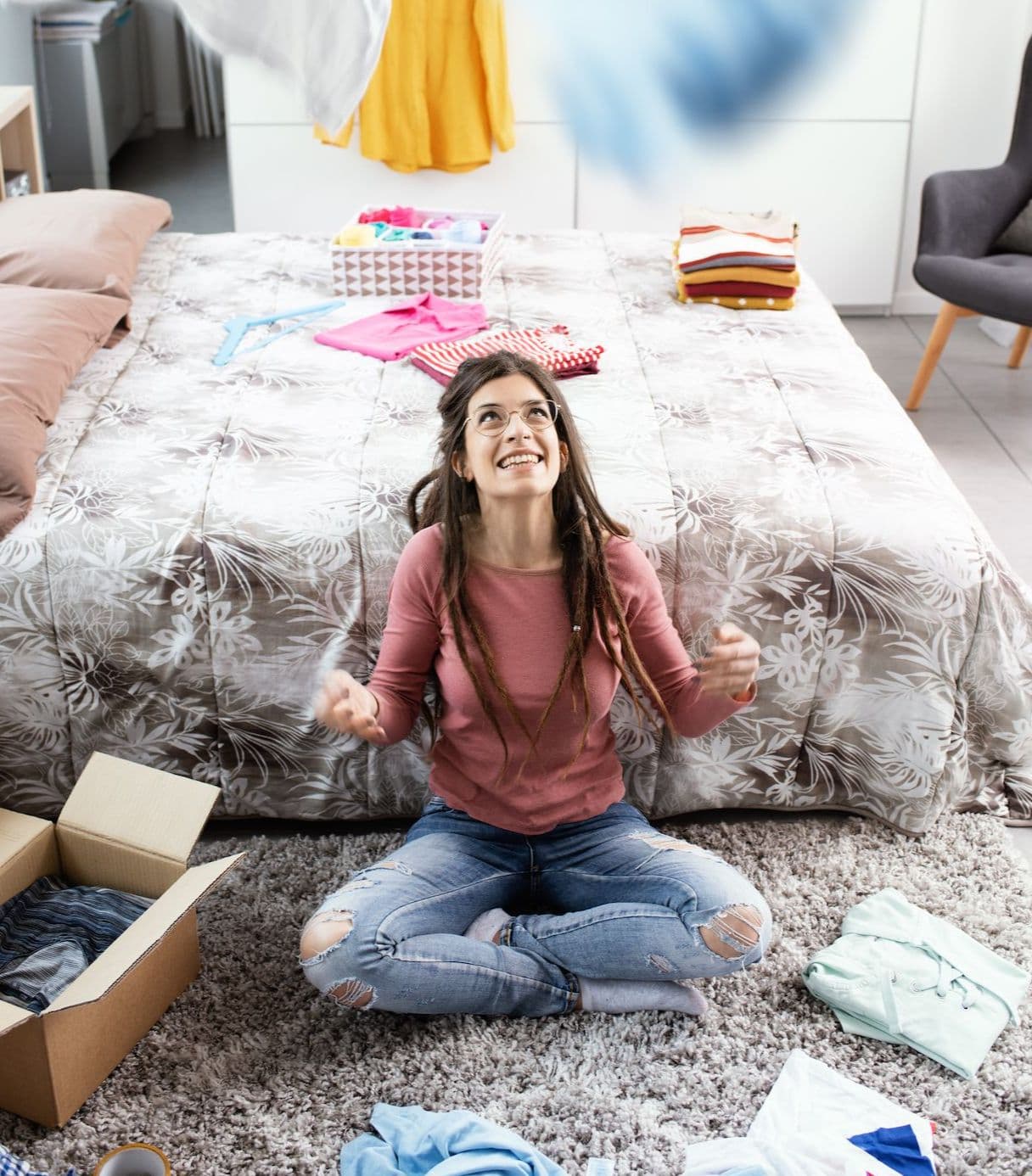well-being
The Profound Link Between Decluttering and Mental Well-Being
The Transformative Power of Decluttering
We often seek peace and calmness through meditation, yoga, or even vacations. However, sometimes the tranquility we seek is buried under the clutter in our homes. The act of decluttering, surprisingly, can be a therapeutic journey that deeply impacts our mental well-being.
Fostering self-efficacy and decision-making
- Decluttering can be seen as a test of our ability to make decisions. As we decide what stays and what goes, we cultivate a sense of competence.
- Successfully organizing and decluttering instills confidence, making us feel more mature and in control, thus contributing to our mental well-being.
Energizing the space
- Tackling clutter can be invigorating. Successfully clearing out spaces puts us in a productive mindset, which often spills over into other areas of our lives.
A peace and calmness antidote
- Evolutionarily, humans are inclined towards order. When our surroundings are chaotic, it can induce feelings of anxiety.
- Just like those with obsessive-compulsive tendencies find solace in organizing, the average person can also feel more at peace in a tidy environment.
Inspiration through activity
- Physical decluttering allows the mind to wander, potentially leading to epiphanies.
- Engaging in physical activity while decluttering can further amplify this effect.
Harmony in relationships
- Clutter can strain familial relationships, often becoming a point of contention.
- A decluttered environment can significantly reduce these unnecessary stresses.
Rediscovering forgotten Joys
- Amidst cleaning and organizing, we sometimes find items that bring back cherished memories or prove useful in unexpected ways.
- These discoveries can bring about feelings of serendipity.
Deep dive into the psychological benefits
Decluttering isn’t just about creating a visually pleasing space. It’s intertwined with our mental health. Some individuals find solace in cleaning just as others might find it in meditation. An organized space can serve as a sanctuary after a taxing day.
However, clutter is not just a physical barrier. It’s a mental one too
- Studies have linked cluttered environments to increased fatigue, depression, and even elevated cortisol levels, indicating stress.
- Clutter can cause distractions, making it challenging to focus. The overwhelming visuals can lead to feelings of confusion, tension, and irritability.
- In contrast, an orderly environment evokes calmness and promotes well-being.
The silver lining of cleaning and organizing
Cleaning does more than just remove dust. It cleanses our minds and it allows for mental well being in an organized space.
- Physical Health Boost: Clean homes correlate with healthier individuals, as indicated by various studies.
- Control Amidst Chaos: Cleaning can provide a sense of dominance over one’s surroundings, especially during tumultuous times.
- Elevated Mood: Mindful activities, even as mundane as dishwashing, can reduce anxiety and increase inspiration. Additionally, cleanliness promotes better sleep, indirectly enhancing mood.
- Enhanced Concentration: Decluttered spaces reduce distractions, allowing for increased focus and productivity.
Decluttering goes beyond the physical act of tidying up. It’s a transformative journey that refreshes the mind, alleviates stress, and promotes a healthier, happier life. So, the next time you feel overwhelmed, consider tackling that pile of clutter. It might just be the therapeutic activity you need.
